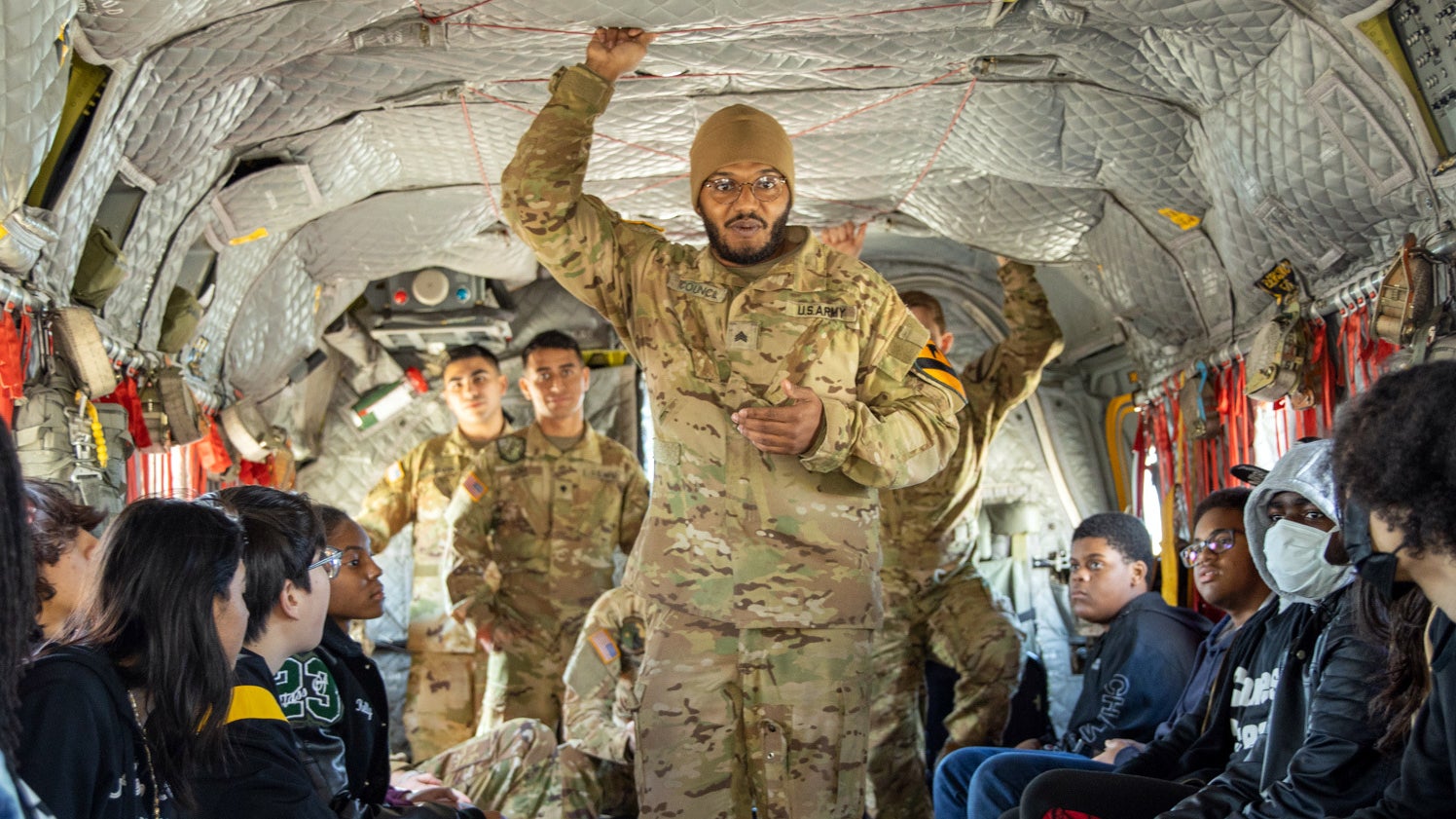Wormuth: ‘Recruiting Problem’ Remains No. 1 Concern
Wormuth: ‘Recruiting Problem’ Remains No. 1 Concern

Despite the continuing recruiting challenge, the Army has increased its recruiting goal for this year, the service’s top civilian leader said.
Missing last year’s recruiting goal by about 15,000 people “is a very serious problem for us,” Army Secretary Christine Wormuth said, noting that this year’s goal of 65,000 is 5,000 more than last year.
“It took us more than a year to get into the situation that we’re in, in terms of the recruiting landscape, and I think it’s going to take more than a year to turn it around,” Wormuth said Feb. 23 at a meeting hosted by the Defense Writers Group, a program of George Washington University’s School of Media and Public Affairs’ Project for Media and National Security
“The No. 1 priority in my mind for this year, particularly in light of the security environment, is fixing our recruiting problem,” Wormuth said. She likened the Army’s end strength to the foundation of a house. “You have to have a strong foundation,” she said.
The Army and its sister services are facing a major recruiting challenge brought on, in part, by the lockdowns of the COVID-19 pandemic, which kept recruiters from critical in-person meetings at high schools, sporting events and outreach initiatives.
There also is a lower propensity to serve among young people, a lack of awareness of the Army and its benefits, and a smaller pool of eligible young people because of poor education, health problems and substance abuse.
Wormuth and Army Chief of Staff Gen. James McConville are working to reintroduce the Army to the American public and are focused on a call to service, Wormuth said.
McConville pointed out during the Defense Writers Group meeting that the Army is going through its biggest transformation in 40 years, including new doctrine and organizations, changes in the way soldiers train and modernized personnel systems, all of which are aimed at the future fight.
As the Army worries about accessions, Sgt. Maj. of the Army Michael Grinston said he’s focused on retention. The shortfall in recruiting last year means there could be fewer NCOs to lead junior soldiers in the future.
“We’ve got to retain the absolute best so that we don’t cause a void as we go three years from now and we don’t have enough NCOs at the sergeant and staff sergeant level,” Grinston said, adding that on the bright side, “once people join the Army, they want to stay. We have not seen retention dip at all, we’ve actually seen it increase.”

